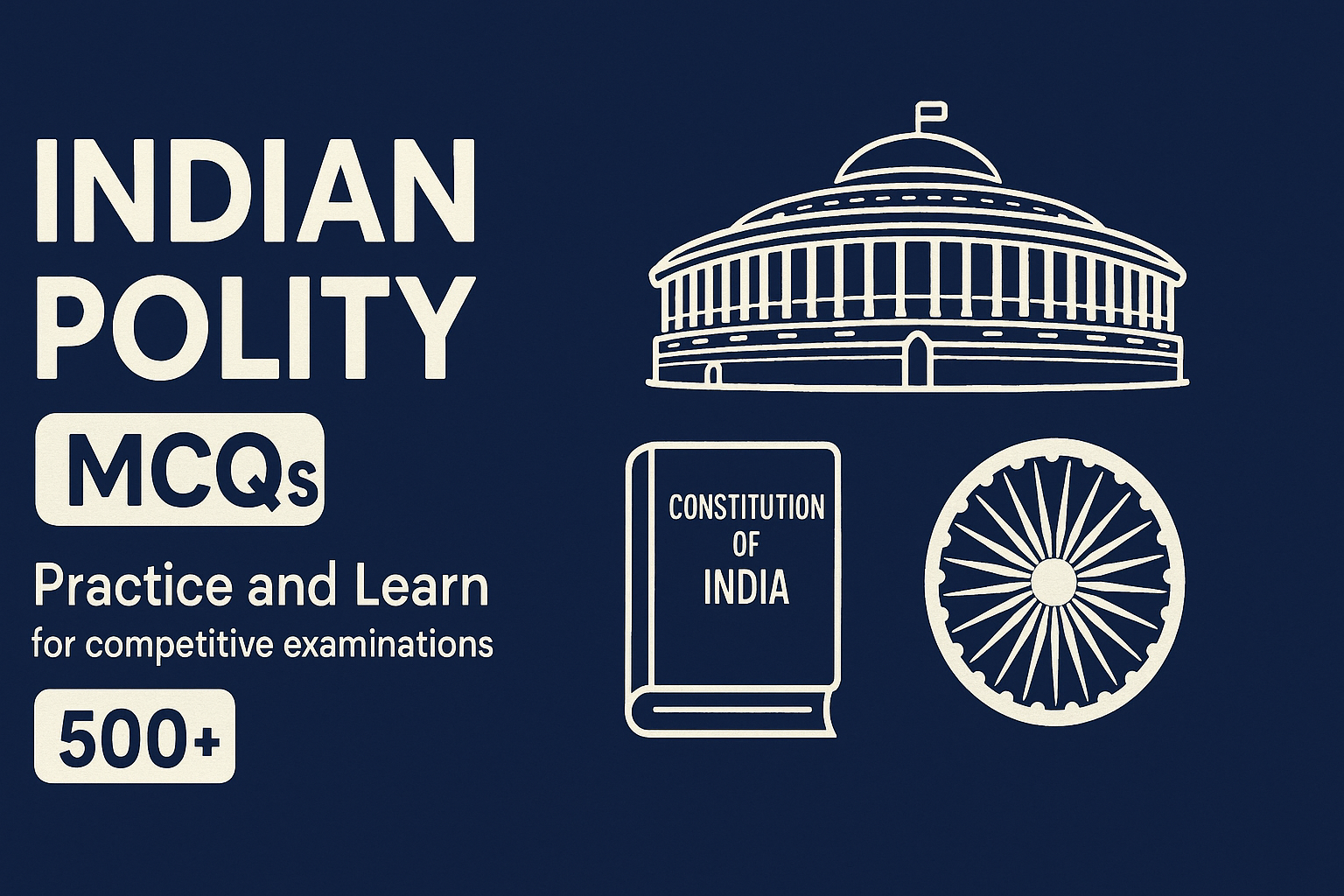
MCQ on Constitution of India and Indian Polity
According to the Indian Constitution, Judicial Review in India is based on
(i) Rule of Law
(ii) Procedure established by Law
(iii) Precedents and Conventions
Select the correct answer using the
codes given below.
A writ issued by a court to some inferior authority to transfer the matter to it for its proper consideration is called
Which of the following Articles of the Indian Constitution enables the State to make provision for reservation in public employment in favour of backward classes?
Which of the following features of federalism is/are not found in the Indian Constitution?
(i) Representation of the States
(ii) Independent Judiciary
(iii) Division of Power between the Union and the State Governments
(iv) Federal Judiciary
Select the correct answer using the codes given below.
Which of the following is/are not part(s) of the Directive Principles of State Policy?
(i) Uniform Civil Code for the citizens
(ii) Promotion of international peace and security
(iii) Right of minorities to establish and administer educational institutions
(iv) Organization of agriculture and animal husbandry
Select the correct answer using the codes given below.
Which of the following statements about membership of the Indian Parliament is/are false?
(i) For qualifying to the Lok Sabha and the Rajya Sabha, a person must be at least 25 years and
35 years of age respectively.
(ii) A person belonging to the Scheduled Castes or the Scheduled Tribes can contest elections from a general constituency too.
(iii) If a member of the Parliament votes against the directions of his/her party, he/she can be
deemed to be disqualified on the ground of defection.
Select the correct answer using the codes given below.
Match the Indian Prime Ministers (List-I) with their initiatives/policies (List-II):
| List-I | List-II | ||
|---|---|---|---|
| a. | P. V. Narasimha Rao | 1. | Six-Nation Disarmament Conference |
| b. | Morarji Desai | 2. | Pokhran-II |
| c. | A. B. Vajpayee | 3. | Look East Policy |
| d. | Rajiv Gandhi | 4. | Genuine Non-Alignment |
Choose the correct chronological sequence of the following events in the context of recognition of human rights:
(i) Magna Carta
(ii) French Revolution
(iii) Universal Declaration of Human Rights
(iv) Adoption of the International Covenant on Civil and Political Rights
Select the correct answer using the codes given below.
Consider the following statements about the Rajya Sabha of the Indian Parliament :
(i) The Rajya Sabha has no power either to reject or to amend a Money Bill.
(ii) The Rajya Sabha cannot vote the Demands of Grants.
(iii) The Rajya Sabha cannot discuss the Annual Financial Statement.
(iv) If any question arises regarding whether a Bill is Money Bill or not, the decision of the
Chairperson of the Rajya Sabha thereon shall not be final.
Select the correct statements using the codes given below.
Which of the following features are regarded as the core features of 'Rule of Law'?
(i) Limitation of powers
(ii) Equality before law
(iii) Liberty and civil rights
(iv) Supremacy of law
Select the correct answer using the codes given below.
